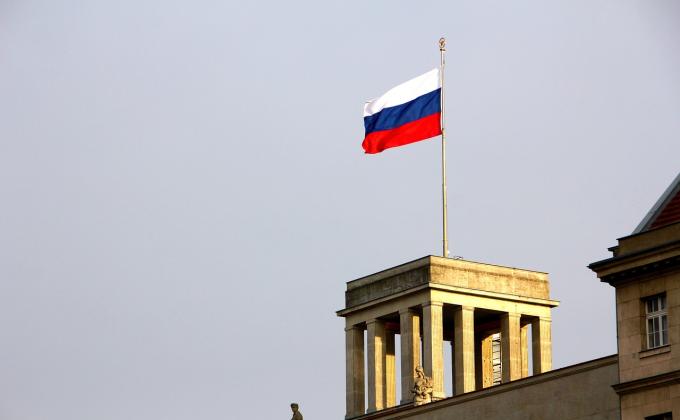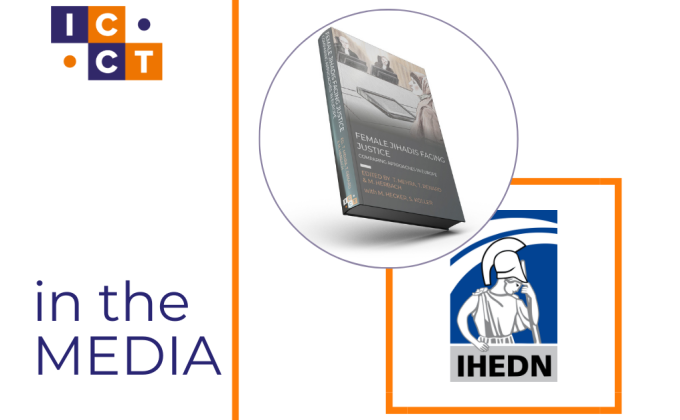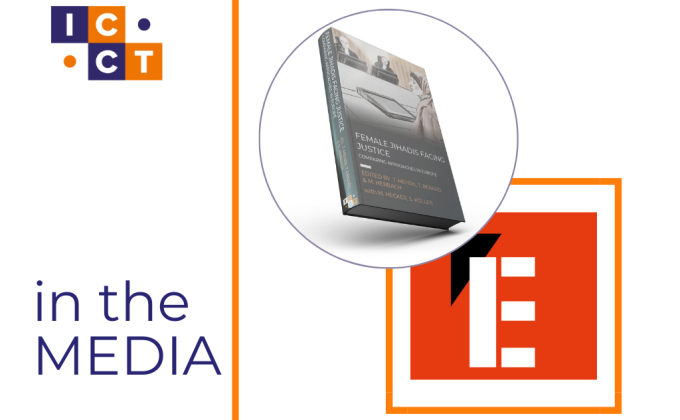Once again, the Court of Justice of the European Union (EU) ruled in a case concerning the freezing of funds and other financial assets controlled directly or indirectly by persons or entities associated with Osama bin Laden, the al Qaeda network or the Taliban. This time, it concerned the appeal against the Kadi II-judgement. The saga seems to continue endlessly, or have we finally reached the last chapter?
In a previous ICCT Commentary, the earlier cases were discussed. These cases were triggered because Mr. Kadi, a Saudi-Arabian resident, was designated by the UN 1267 Sanction Committee in October 2001 as “being associated with” Osama bin Laden and al Qaeda, and was added to the UN Consolidated List. According to this measure, authorities needed to freeze Mr. Kadi’s financial assets. The European Commission therefore adopted a Regulation to implement this measure on the European level; a measure that was appealed by Mr. Kadi. Subsequently, the Court of Justice of the EU ruled in September 2008 that “an international agreement [i.e. a UN Security Council resolution ordering the freezing of assets of listed persons and entities] cannot affect the allocation of powers fixed by the Treaties, or consequently, the autonomy of the Community legal system” and “the obligations imposed by an international agreement cannot have the effect of prejudicing the constitutional principles of the EC Treaty”. This was an important conclusion, because the Security Council resolution on which this listing was based has binding force and hence places the obligation on states to respect that decision even in the event of a conflict with other international agreements. The Court in Kadi I, however, especially referred to the fundamental human rights principles that need to be respected by the law-making activities of the EU organs. The Court furthermore found that it was the Commission’s task to ensure a full, rigorous judicial review of the lawfulness of the freezing measure, and that henceforth information and evidence substantiating the reasons underpinning the measure needed to be made clear to the listed person. Since that had not been the case, the Court ruled that Mr Kadi’s right of defence and his right to effective judicial protection had been infringed upon.
In accordance with this judgement, Mr. Kadi’s listing was initially annulled, but he was immediately re-listed by the Commission after having been handed a statement of reasons issued by the UN Sanction Committee for his listing, on which he was invited to comment. The UN Sanction Committee has since its establishment also made some important changes to its procedure, but does still only share limited information with the listed person or entity. The statement of reason is therefore just a summary to explain the main reasons for listing. Mr. Kadi subsequently filed yet another request for annulment, on which the General Court ruled in September 2010 in the Kadi II case. The General Court found that the mere sending of the statement of reasons, and the invitation to comment, did not qualify as a “full review” as was intended by the Court of Justice in its 2008 ruling. In the opinion of the General Court, the little information provided in the form of the statement of reasons would not be sufficient for the applicant to launch an effective challenge to the supposed allegations against him so far as his alleged participation in terrorist activities is concerned.
This judgement was appealed by the Council and the United Kingdom. In its yet again ground-breaking judgement of 18 July 2013, the Court further clarified the earlier judgement of the General Court, and even took a step further: Not only has the Court once again stressed that a full review of the listing is necessary and that the listed individual or entity should therefore have access to the information underpinning the arguments for his/her listing, this information should also allow the individual to effectively comment on the arguments against him/her (par. 111). The Court further specified that it is thus the task of the EU authorities to – if necessary – seek the assistance of the UN Sanction Committee or the UN member who nominated the individual for listing, in order to obtain the disclosure of information or evidence, confidential or not, to enable an effective examination of these arguments (par. 115). Hence, whereas the burden of proof seemed to have been placed for a long time on the listed person to prove his/her “innocence” based on limited information, the Court has now finally made it crystal clear that the opposite is true: The authorities have the responsibility to provide evidence to support the allegations, and it is not up to the individual to prove the contrary (par. 121). More importantly, the Court has further explained that the Courts of the EU should not stop at this “formal” assessment of the procedural safeguard that follows from the fundamental principles of the EU Treaty and that should be respected in the listing procedure, but that the Courts should also assess the information underpinning the allegation on its substance (par. 119). The Court should do this solely on the material that is disclosed to them. The examination of the case thus needs to be both in law and in fact.
In its Kadi II judgement of 2010, the General Court already notified that a procedure needs to be defined to make it possible to review confidential information, which in general plays an important role in cases dealing with security issues (see also ICCT Research Paper on intelligence and human rights in terrorist trials). When dealing with security issues, authorities rely to a great extent on intelligence that needs to be kept confidential to protect sources. However, when this intelligence is used to underpin arguments to restrict the rights of individuals, a balance needs to be struck to serve both the need for confidentiality and the rights of the individual. The Court in this judgement places the responsibility on the EU Courts to determine the validity of the grounds relied on by authorities to preclude the disclosure of information and evidence for reasons of security (par. 125). It thus ruled that a mere claim for confidentiality for security reasons by authorities cannot be taken on face value, but needs to be based on arguments, that will be assessed by the Court.
The Court partially follows the practical interpretation that the UN Ombudsperson for delisting, Ms. Kimberly Prost, has given to her mandate. It states that in case the Courts find that the reasons to preclude disclosure of information do not suffice, the Court shall undertake the examination of the lawfulness of the freezing measure solely on the basis of the material that has been disclosed to the person. If, on the other hand, the Courts find that the reasons for non-disclosure are valid, it is still the duty of the Courts to strike a balance between the rights of the individual to effective protection, and the requirements related to the duty of the EU and its member states to guarantee security (par. 128). The UN Ombudsperson in the practical interpretation of her mandate goes one step further, and makes state authorities responsible for convincing her of the necessity for the listing. If they do not wish to share the necessary information – whether confidential or not – the Ombudsperson might advise that, based on the available information, there is not enough evidence to substantiate the listing, after which a decision for de-listing is very likely. In its latest judgement, the Court apparently does not want to go that far. It argues that non-disclosure in itself cannot, as such, justify a finding that the right of effective judicial protection have been infringed upon (par. 137). In light of the balance between (inter)national security concerns and the rights of the individual, the Court also points out that, having taking into account the preventive nature of the restrictive measures at hand, it might suffice to at least acknowledge one of the reasons mentioned in the summary provided by the UN Sanction Committee to be detailed and specific enough to support the listing.
Although the European Court in this case does not go as far as to acknowledge the punitive character of the listing measures, and hence does not go as far as to declare applicable the full range of the principles of a fair trial, including the presumption of innocence, it does succeed in clarifying the requirements that need to be met in order to apply preventive measures with a restrictive character in a balanced manner. This judgement will furthermore strengthen the position of the UN Ombudsperson and the practical interpretation of her mandate (Ms. Prost incidentally had already advised the delisting of Mr. Kadi which was effectuated in October 2012). And finally, it will function as a strong incentive for member states in cooperation with EU authorities to set up a safe and secure framework for the assessment of confidential information. This will be in line with the strong, rule of law-based approach by the EU to counter-terrorism and reflect the way the EU looks for partnerships with other international actors in dealing with counter-terrorism issues. It will also keep the pressure on the UN Security Council to ensure that more amendments are made to the listing procedures. In that respect it is worth mentioning that the amendments to the terrorist freezing lists have not yet been followed by amendments to the procedures of other Sanction Committees that also impose freezing measures against individuals such as the Somalia Sanction Committee, and that so far offer no procedure for appeal whatsoever.
After more than a decade on the UN sanction list, and numerous trials, Mr Kadi’s odyssey stops with this judgement, but the strong views of the Court with respect to what effective “judicial protection” must entail, suggest that, as long as the UN procedure does not yet pass this test, we can expect more cases challenging the EU’s implementation of the UN sanctions list. This also leaves us with the question whether the EU Court did not after all implicitly pronounce a judgement on the legality of the UN measure.








